| Dear Hiveans | Liebe Hiver | Queridos Hiveanos |
|---|---|---|
| Today I'd like to share my favourite excerpts from the book "The Enlightenment" (goodreads) by Roy Porter, who was a British historian (wiki, memorial). | Heute meine Lieblingsauszüge aus dem Buch "The Enlightenment" (goodreads) von Roy Porter, einem britischen Historiker (wiki, memorial). | Hoy me gustaría compartir mis extractos favoritos del libro "La Ilustración" (goodreads) de Roy Porter, que fue un historiador británico (wiki, memorial). |
Why an Enlightenment was necessary
The 'Preliminary Discourse' to Diderot and d'Alembert's celebrated Encyclopedie spoke of the need to create new forms of knowledge to meet the needs of a new world.
As Gay has emphasised, the exponents of Enlightenment were neither rationalists, believing that reason was all, nor irrationalists, surrendering their judgement before feeling, faith intuition and authority. They criticised all such simple-minded extremes, because they were above all critics, aiming to put human intelligence to use as an engine for understanding human nature, for analysing man as a sociable being, and the natural environment in which he lived. Upon such understanding the foundations for a better world would be laid.
They called themselves 'philosophers', and this term (in the French form, philosophes) will serve - for there is no exact English equivalent - as a convenient group name for them below. (Occasionally the German form, Aufklärer (= Enlighteners) will be used.) But we must not think of them as akin to the stereotypical modern philosophy professor, agonising over the nuances of words in his academic ivory-tower. Rather they were men of the world: journalists, propagandists, activists, seeking not just to understand the world but to change it. Diderot and d'Alembert's Encyclopedie thus defined the philosophe as one who 'trampling on prejudice, tradition, universal consent, authority, in a word, all that enslaves most minds, dares to think for himself'. Voltaire was to the fore in campaigning against legal injustice in a succession of causes celebres in the 1760s; for a brief spell, it fell to the philosophe-economist, Turgot, to take charge of the French finances; the leading American intellectual, Ben Franklin of Philadelphia, put the science of electricity on the map, invented bifocal spectacles as well as lightning conductors, and also played a crucial part in setting up the new American republic. …
In his dazzling and sympathetic account written in the optimistic climate of the 1960s, Gay depicted the Enlightenment as a unity ('there was only one Enlightenment', the work of a group of people who largely knew and admired each other, or at least were familiar with each others' works. They hailed from the major nations of Europe and from British North America. There were the Frenchmen, Montesquieu, Voltaire, Diderot, d'Alembert, Turgot, Condorcet; the Britons, Hume and Gibbon; the Genevan, Rousseau; the German-born d'Holbach, Kant and Herder; the American, Benjamin Franklin. These constituted the hard core of what Gay called a 'family' or a 'little flock' of philosophes, flourishing from around the 1720s to the dawn of the new American Republic in the 1780s, when the French Revolution was on the horizon. And there were many others whose contributions were only slightly more peripheral or less influential: the pioneer psychologists, La Mettrie, Condillac and Helvetius; the codifier of utilitarianism, Jeremy Bentham; the Italian penologist and enemy of capital punishment, Beccaria; the systematiser of political economy, Adam Smith; those draftsmen of American constitutional liberties, Jefferson, Adams and Hamilton - and others besides. … Like the members of every close family, Gay cheerfully conceded, they had their disagreements. Yet he emphasised the cardinal points upon which they were essentially at one. They shared a general commitment to criticising the injustices and exposing the inefficiencies of the ancien regime; to emancipating man, through knowledge, education and science, from the chains of ignorance and error, superstition, theological dogma, and the dead hand of the clergy; to instilling a new mood of hope for a better future ('a recovery of nerve', Gay felicitously called it; and to practical action for creating greater prosperity, fairer laws, milder government, religious tolerance, intellectual freedom, expert administration, and not least, heightened individual self-awareness.
| "practical action for creating greater prosperity, fairer laws, milder government, religious tolerance, intellectual freedom, expert administration, and not least, heightened individual self-awareness" - we urgently need a second Enlightenment | "Praktisches Handeln zur Schaffung von mehr Wohlstand, gerechteren Gesetzen, milderen Regierungen, religiöser Toleranz, geistiger Freiheit, sachkundiger Verwaltung und nicht zuletzt eines gesteigerten individuellen Selbstbewusstseins" - wir brauchen dringend eine zweite Aufklärung | "acciones prácticas para crear una mayor prosperidad, leyes más justas, un gobierno más suave, tolerancia religiosa, libertad intelectual, administración experta y, no menos importante, una mayor autoconciencia individual": necesitamos urgentemente una segunda Ilustración. |
Educated people were no longer standardly primarily the servants of the crown or the mouthpieces of the churches. For all the assurances of a distinguished 18th-century writer, Jonathan Swift, the pen may not have been mightier than the sword. Yet Enlightenment words did prove dangerous weapons. Those making quills their weapons were not the servile mouthpieces of absolutist rulers, but freebooters, those intellectual bandits who have ensured the intellectual anarchy of 'free societies' ever since.
- intellectual bandits 😂
It was the thinkers of Germanic and Central Europe above all who looked to powerful, 'enlightened' rulers to preside over a 'well-policed' state. By this was meant a regime in which an efficient, professional career bureaucracy comprehensively regulated civic life, trade, occupations, morals and health, often down to quite minute details. Laws were to be passed, for example, giving encouragement to earlier marriage, thereby boosting the population, increasing the workforce, stimulating the economy, extending the tax base, and with it the potential military strength of the realm. Leading advocates of systematic rational government, such as Justi and Sonnenfels, argued that Cameralwissenschaft (the science and practice of administration) would simultaneously serve the ruler (by increasing revenue and strengthening public order) while also improving the lot of the people.
- good or bad?
The philosophes mocked narrow-minded nationalism along with all other kinds of parochial prejudice. They liked to view themselves as men of the world, who belonged less to Savoy, Scotland or Sweden than to an international republic of letters. And in doing so they looked back admiringly to the internationalism of the Stoic philosophers of Antiquity, and to the common civilisation which had united the Mediterranean in the days of Rome. The pursuits of science and scholarship, after all, still drew upon a common learned language, Latin, for their communications. And if Latin was losing ground in the 18th century, a new international lingua franca was taking its place: French. Frederick the Great communicated with Voltaire in French as did Catherine the Great with Diderot; Edward Gibbon even published his first book in French.
- This reminds me of that quote:
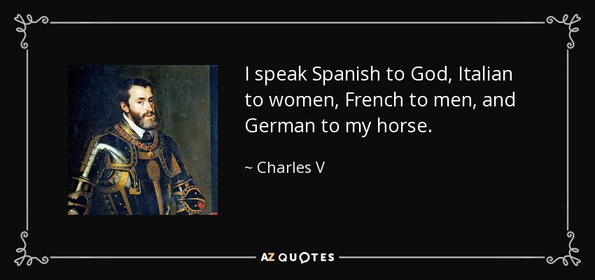 source
source
Dutch thinkers resolved the problems of the Enlightenment almost before anyone had experience of them. As Schama has emphasised, the 17th-century Dutch Republic was sui generis. First the Spanish, and then the French, tried to blast the nation off the map by force of arms. They failed, but even so, traditional wisdom held that the United Provinces was such a peculiar entity that it had no business to survive. For it harboured a multitude of different peoples and creeds, not just Protestants and Catholics, but Jews and Moslems as well. It was, furthermore, a political hybrid, possessing, in the stadholder, only the palest imitation of a monarch, and relying upon a devolved, ramshackle, republican political structure which was often divided among itself. It was dominated less by the customary hereditary military aristocracy than by
townsmen, and its wealth came not from the land but from trade. Nor was it a 'republic' in the classical mould.
For political wisdom about republics demanded that they should cultivate frugal virtue and renounce 'luxury'; the burghers of Holland, by contrast, enjoyed their uncommon prosperity to the full. The Dutch Republic was thus, in the eyes of many, a nonsense, and no one quite knew what to make of it. Yet against all the odds, by the close of the 17th century it had clearly proved a success story, and thereby became a standing instance of Enlightenment desiderata in operation: freedom from tyranny, religious pluralism and tolerance, prosperity, a (relatively) peaceful foreign policy. Its safe-haven for intellectual exiles, its scientific productivity, and its high-quality publishing houses made the Dutch Republic seem like an enviable recipe for progress.
The uniqueness of the British experience could not be so readily dismissed. Admittedly, 18th-century England did not produce that galaxy of daring intellectuals, radiating all that was most radical in politics, freethinking, and moral and sexual speculations, that flourished in France. Yet that was not because Georgian England was benighted. Far from it. It was because England was already undergoing, before the 18th century opened, those transformations in politics, religion and personal freedom for which French radicals had to clamour, unsuccessfully, all the century.
Above all because of the 'Glorious Revolution' of 1688, England had achieved the guarantee of parliamentary representation and constitutional government, individual liberty (habeas corpus), substantial, though not complete, religious toleration, and freedom of expression and publishing. Philosophers such as John Locke had in effect produced blueprints for the Enlightened society: a liberal regime based upon individual rights and natural law, the priority of society over the ruler; a rational christianity; the sanctity of property, to be deployed within a liberal economic policy; a faith in education; and, not least, a bold empiricist attitude towards the advancement of knowledge, which championed the human capacity to
progress through experience.
If continental intellectuals had mixed feelings about the Dutch achievement, they were hardly in doubt about the British. 'Anglomania' swept the continent, fired by Voltaire's Lettres philosophiques (1733) which positively glowed about Britain's political liberty, religious toleration, economic success, cultural modernity and scientific glories - Newton above all.
In cities from Copenhagen to Milan, newly founded reading societies gathered over the newly popular drink, coffee, to hear essays on history, philosophy and human prospects, and to acquire the virtues of polite culture, useful learning, and refined taste in the arts [...].
- Coffee, reading, and polite culture - I love that 😀
This enlightened activity in central Europe operated within the existing political structures. Unlike in France, its priority was not to assail church and state and call for radical political liberties. Such strategies would have seemed shallow, foolish, and above all, foredoomed. []
In Britain, advocates of Enlightenment largely accepted the post-1688 settlement, defended it, and got on with the business of advancing society through piecemeal economic change and personal improvement. In the British colonies of North America, Enlightenment became the idiom of rebellion, and the founding fathers had the unique oportunity to set up an enlightened polity from scratch. In Central Europe, the Aufklarer threw in their lot with the authorities, seeing in them the agents of orderly well-administered progress. It was in France, however, that the configurations of Enlightenment proved most unstable.
Unlike in England, the French philosophes deplored the way their kingdom was constituted: it was backward, repressive, a failure even upon the international stage. Nor did they feel loyalty towards it, as did many German Aufklärer towards their own principalities.
- why instability in France? Has that to do with Law's Mississippi bubble and the inflation? (wiki)
No fatal socio-political tensions were produced by the Enlightenment in central and Eastern Europe, or in such small absolutist realms as the Italian duchies or Portugal. There the tendency was for the intelligentsia to be incorporated within the hegemonic order.
In England, by contrast, such tensions as existed did not reach breaking point, because the state had already conceded liberty of expression and plenty of scope for the development of civil society and the economy. The activities of independent writers, industrialists, propagandists and critics were no real threat to the state. English intellectuals and artists, while often vocally anti-king or anti-ministry, profoundly identified themselves with the cause of the nation at large, and tended to be effusively patriotic.
France was the great anomaly. It was a sufficiently modernised society to possess an influential intelligentsia, confident of its own muscle-power, relatively independent of crown patronage, ecclesiastical preferment or academic honours. French thinkers were afraid of being crushed by authority. Yet it was an intelligentsia disaffected and capable of speaking to the disaffected. It would be extravagent to imply that the French Enlightenment brought about the French Revolution. But the movement certainly helped to create a situation in which ideological loyalty to the old regime was steadily and almost entirely eroded.
Philosophe history - indeed, its perspectives upon man in general - replaced a divine frame of reference with a human. The Enlightenment thus decisively launched the secularisation of European thought. To say this is not to claim that the philosophes were all atheists or that people thereafter ceased to be religious. Both are palpably untrue. After all, the reaction against the French Revolution produced powerful evangelical and ecclesiastical revivals all over Europe. But after the Enlightenment the Christian religion ceased, finally, to preoccupy public culture. The Enlightenment is what sets Dante and Erasmus, Bernini, Pascal, Racine and Milton - all great Christian writers and artists - on the one side of the great cultural divide, and Delacroix, Schopenhauer, George Eliot and Darwin on the other. Romanticism, one might suggest, is what is left of the soul when the religion has been drained out of it.
Or that the legacy of the Enlightenment was the emancipation of the European mind from the blinkers of dogma. If so, the ultimate impact of the Enlightenment would best be characterised as radical. [...]
The Enlightenment helped to free man from his past. In so doing, it failed to prevent the construction of new captivities in the future. We are still trying to solve the problems of the modern, urban industrial society to which the Enlightenment was midwife. And in our attempts to do so, we largely draw upon the techniques of social analysis, the humanistic values, and the scientific expertise which the philosophes generated. We remain today the children of the Enlightenment.
| This was an entertaining and interesting short read of around 100 pages. It gives a good overview of the Enlightenment and its prime thinkers. | Dies war eine unterhaltsame und interessante Kurzlektüre von etwa 100 Seiten. Es gibt einen guten Überblick über die Aufklärung und ihre wichtigsten Denker. | Se trata de una lectura breve, entretenida e interesante, de unas 100 páginas. Ofrece una buena visión general de la Ilustración y sus principales pensadores. |
Have a great time,
zuerich

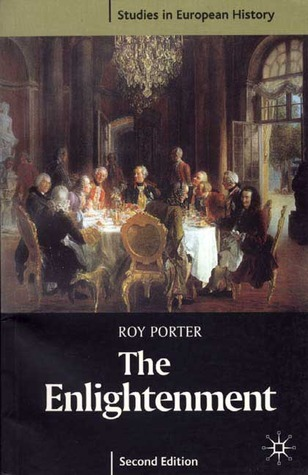
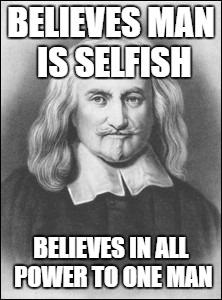
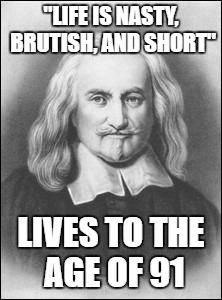
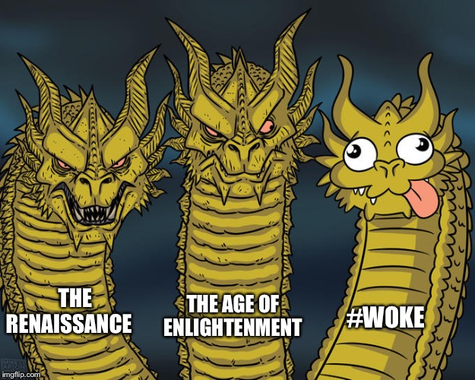
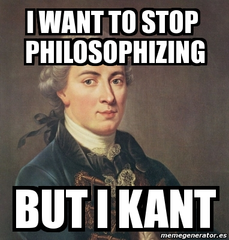
Very curious how they were related in ancient times, although I never thought about why they left Latin aside, being a very well-known language at that time. ^^